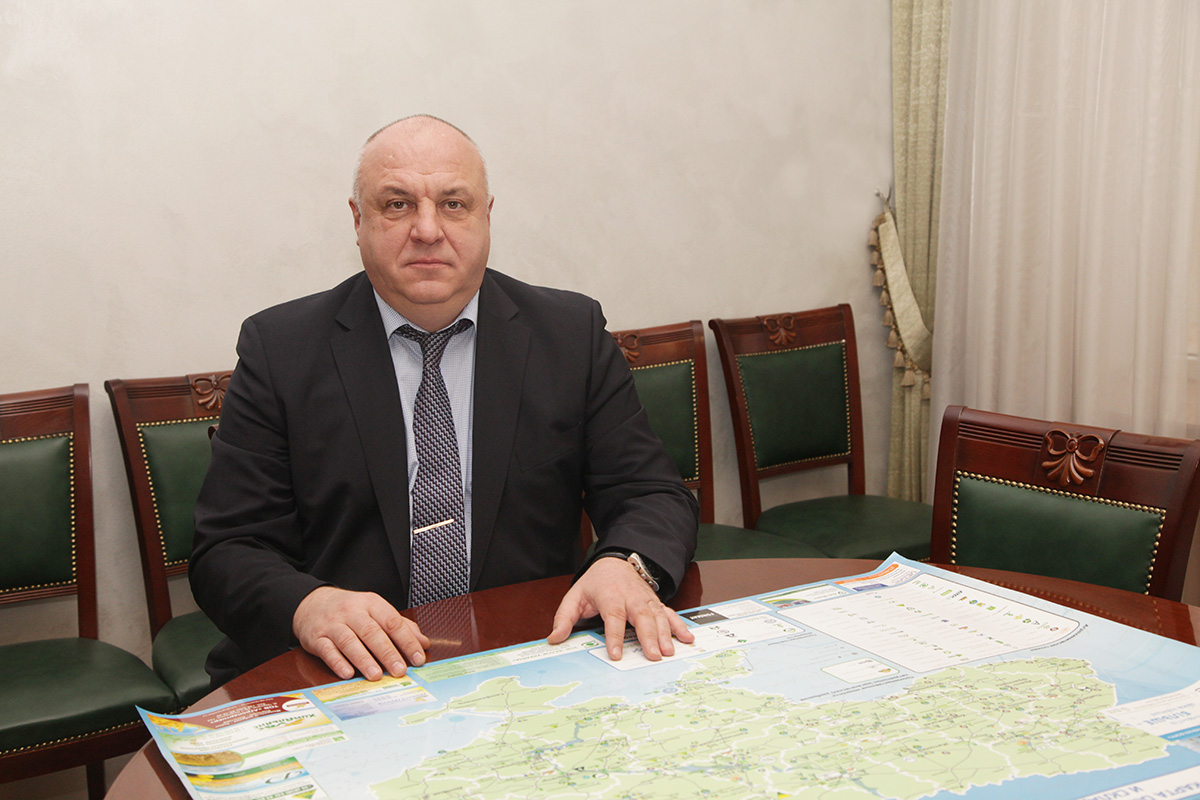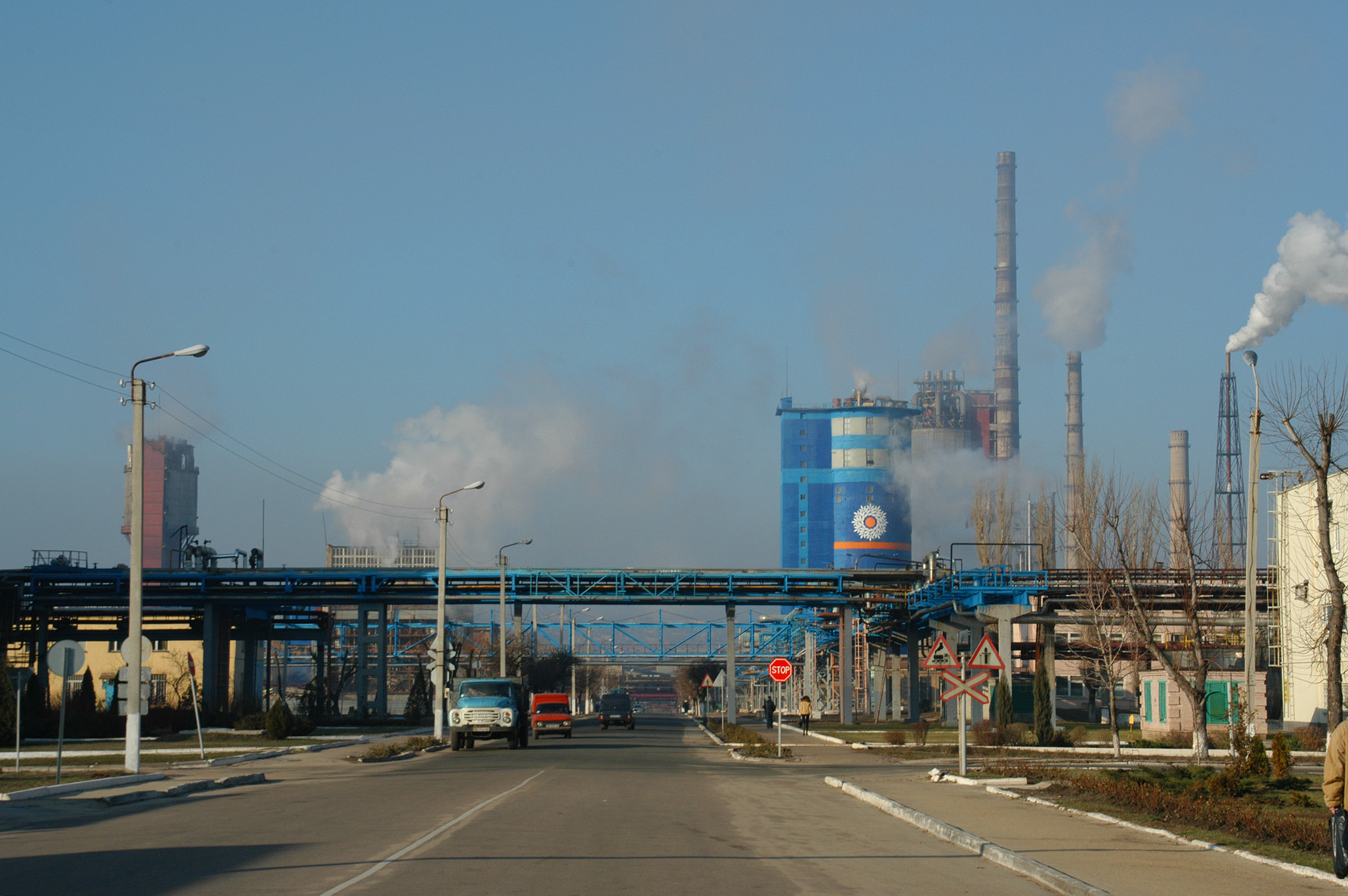
|
Group DF - international group of the companies, major investments are concentrated in the nitrogen, titanium and gas businesses. |
|
15 July 2020 Leonid Bugayov: Refusing to introduce quotas on imported mineral fertilizers the government “shoots its own leg”The Government's refusal to introduce quotas on imported mineral fertilizers will lead to reduction in thousands of jobs at the most of enterprises of the chemical industry in Ukraine. This also applies to PJSC "SEVERODONETSK AZOT ASSOCIATION". This was the statement made by Leonid Bugayov, Chairman of the Board, PJSC "Severodonetsk Azot Association", in a blitz interview following the meeting of the employees with the leadership of the regional federation of trade unions and the sectoral trade union organization.  - Today, at the meeting of the trade unions and the employees you voiced the prospects of possible downsizing at the enterprise. Are those prospects real? - Over the last year, we have recovered 350 jobs in an attempt to to launch the second ammonia and urea production facility. Now it will be harder for us to sell our products, because we are left one-on-one against Russian fertilizers. We cannot compete with them in terms of the price. The embargo on the import of Russian fertilizers is not efficiently enforced; Russian fertilizers are imported to Ukraine through other jurisdictions. Recently, the Russians set up subsidiaries in Georgia and Poland and established cooperation with enterprises in Belarus. De facto, there are many Russian products on the Ukrainian market. The cost of the natural gas, which is the main raw material, is 2-2.5 times lower for the Russian companies; gas is the main cost factor for the mineral fertilizers. That is why we are facing the real threat of losing the Ukrainian marker in nitrogen fertilizers. Consequently, we would have to take extreme measures and downsize the staff again. According to our estimates, we are talking about 1000-1200 people, i.e. almost 30% of the headcount. All the branches of the Government have to understand the consequences and bear responsibility for these anti-Ukrainian decisions of Intra-Governmental Commission for International Trade. Unfortunately, we had to face a blatant lobbying. Some "agri-barons" managed to lobby the decision in the highest corridors of power. Unfortunately, interests of the Russian companies prevailed over those of Ukrainian companies. Ministry of Economy and the Government give the green light to import contrary to common sense. Ukrainians are the ones to suffer from this decision. Because imports just kill the jobs. By the way, it is interesting to know that now the same agri-barons want to push for seasonal quotas on imports of agricultural products to Ukraine. These same agri-barons want to keep out small Ukrainian farmers when they want to introduce a tax on land shares. The Government cannot constantly play up to one sector - the agriculture - and neglect another one, such as chemical industry.
Do you think that the downsizing is linked directly to the Government's decision to cancel import quotas on Russian mineral fertilizers in Ukraine?
- That is correct. I am 100% sure of that. Figuratively speaking, the Government for some reason is now "shooting itself in the foot". That was the first impression of the decision not to impose import quotas on fertilizers, adopted by the Intra-Governmental Commission on International Trade. The chemical industry, specifically nitrogen chemistry, if not the only one, then one of the few industries that has shown steady growth this year against the background of the general economic downturn in Ukraine. Moreover, it kept Ukrainian economy from falling even deeper. Someone is trying to bring down the chemical industry as the driver of the Ukrainian economy. The Government should on the contrary support industries that are growing. After all, chemical industry can give up to 10% of the GDP! At the same time, we observe the opposite things happening. The Government does not help, but rather put spokes in the wheels.
Did the embargo on the import of Russian fertilizers allow chemical companies to gain momentum for a certain period?
- That is right. In the summer of 2019, Ukraine imposed an embargo on the import of Russian fertilizers. This decision gave us some time and opportunity to begin to revive after a protracted period of crisis. We as producers counted on the continued Government support, and expected it to be a set of measures. Everyone understood, and then got convinced in practice that the embargo did not stop Russian products, but only temporarily delayed them. Import of Russian fertilizers to Ukraine goes on through Belarus, Poland and Lithuania. That is, the embargo had a temporary effect. The Russians are already very experienced in hybrid trade wars; they have learned how to go around the restrictions. They have been under sanctions since 2014 and have long ago adapted to bypass the restrictions. In order to consolidate the effect of the embargo, so to speak, to fix this good effect, the Government should have taken the next step and introduce import quotas on fertilizers. This would allow protect Ukrainian nitrogen chemicals, all companies in the industry, regardless of the ownership. For example, Odessa Port Plant belongs to the state. Introduction of quotas would allow loading the production capacities of Ukrainian producers, who in turn would be able to provide farmers with the required amount of fertilizers. Our plants are capable of producing 5 million tons of fertilizers per year. The Ukrainian market potential is 4.2 million t of fertilizers per year. Why do we need foreign fertilizers? After all, we are talking about jobs for tens of thousands of skilled workers. We were ready to discuss this decision with all stakeholders and seek a reasonable compromise. And we ask that the President and the Prime Minister see into this matter.  They seemed to hunt down this issue, but nobody listened to the opinion of the chemical industry? - Nobody really was listening to what the chemical industry representatives were saying. At the Government level, a decision has been made that effectively throws the whole industry back. There is a lot of talk going on now about economic protectionism, about the importance of Ukrainian companies and their products entering global markets. So far, these are just words. To achieve this, the Government must learn to protect its producers on its own, domestic market. The Government should learn how to win trade wars. For the chemical industry, import quotas could be such safeguards, but this chance was not used. Otherwise, Ukrainian companies would be able to invest more in modernization. Now the Government has once again opened the doors wide open to foreign fertilizers, primarily of Russian origin. I repeat that, most likely, it will lead to reduction of thousands of jobs at the Ukrainian chemical enterprises. Then, if there is no own, domestic producer, it would lead to higher prices for fertilizers for the consumers, Ukrainian farmers. It might be the case that Ukraine's food security will depend on fertilizer producers from other countries. What does the chemical industry stand for? What do they want? - We want the Ukrainian chemical industry to grow and develop normally, to launch new production facilities and to produce quality products. Including PJSC "Severodonetsk Azot Association". The company is working in Luhansk region, i.e. the region where each job and each production facility in operation are of special value and importance. There are all infrastructure prerequisites for this such as the commissioning of Kreminska substation. This is an important event for the whole Luhansk region. It is via this substation that Luhansk region is once again reconnected to the United Power System of Ukraine and reliable and uninterrupted energy supply of the region is restored. This is important for the development of industry in the region, and especially for such enterprise as PJSC "Severodonetsk Azot Association". Two independent sources of power supply are required to ensure the full-fledged operations of the company. Starting from 2014 and until now there has been only one source of power supply, i.e. Luhanska TPP. Now, with the launch of Kreminska substation, we will not worry about the power supply failure that might force us to suspend production. For PJSC "Severodonetsk Azot Association" as the largest enterprise with the continuous production cycle, the new substation is an opportunity to ensure the stable operations. But stable operations is not only about energy efficiency? - Another factor of such operations should be a comprehensive approach of the Government to the protection of domestic producers in chemical industry. We are ready to work, provide jobs and participate in the development of the infrastructure of our host regions. We believe that the interests of chemical industry and the Government coincide in this respect. At the end, of the day everyone will benefit from it. |